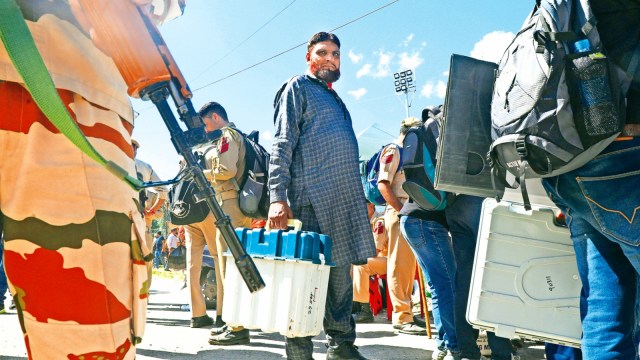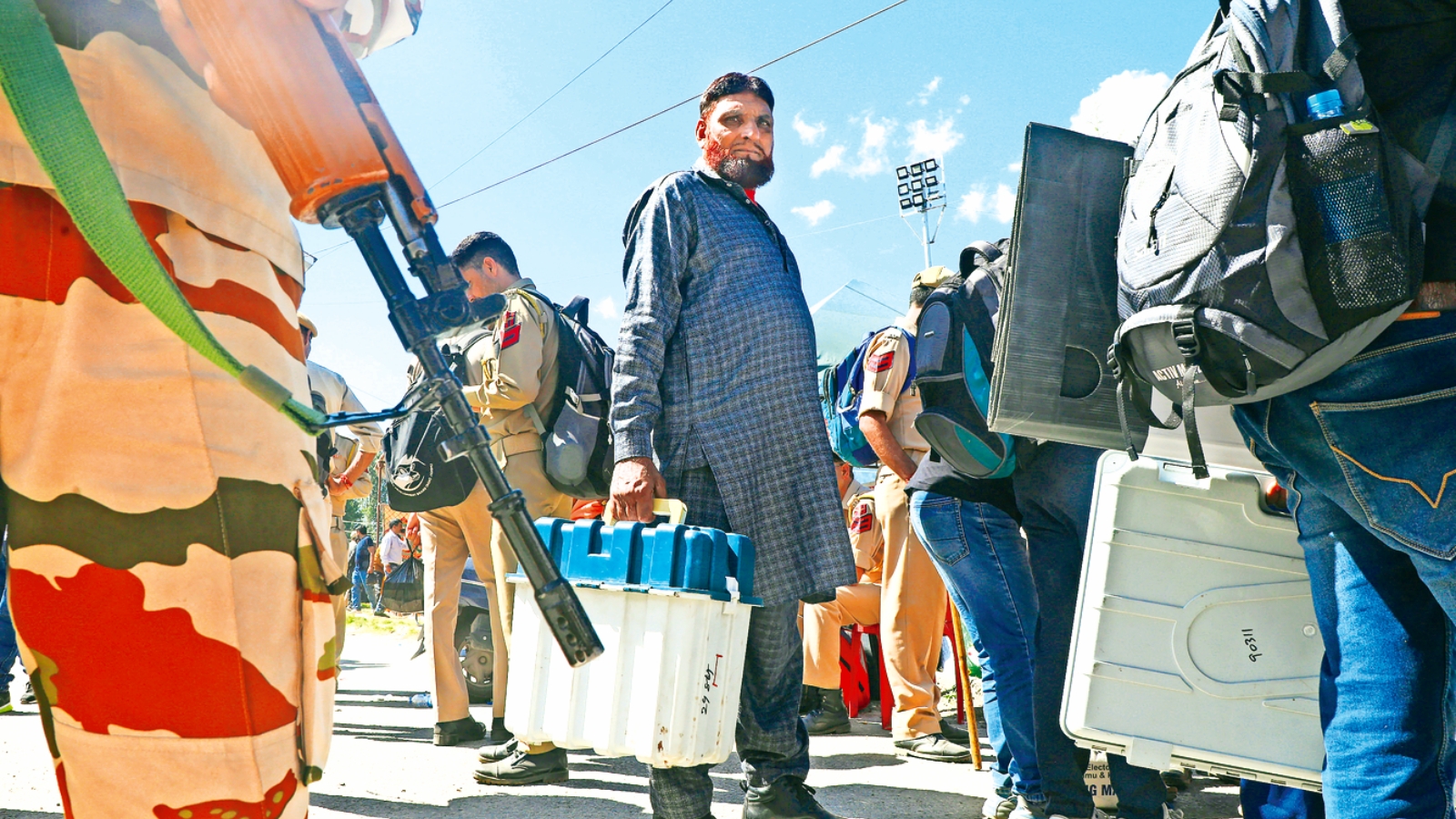
Two phases of elections to the Jammu & Kashmir UT legislature are over. These elections — the first since the erstwhile state was reorganised into two Union territories five years ago — are being watched closely by many in the world. A delegation of diplomats from 16 countries, including the US, South Korea, Mexico, Singapore, South Africa and the Philippines, visited Srinagar on the day of the second phase of polling, and appreciated the transparent election process and enthusiastic participation of the people. A senior US diplomat described the polls as “very healthy and very democratic.”
The final phase on October 1, when the remaining 40 seats of the 90-member legislature will go to the polls, will be the most critical for the parties in the fray. In this phase, 24 seats of the predominantly Hindu districts of Udhampur, Kathua, Samba and Jammu will go to polls. The BJP has high stakes in these areas. The remaining 16 seats in the hill districts of Kupwara, Baramulla and Bandipora in North Kashmir will also vote. Elections in North Kashmir became intriguing with the entry of Engineer Rashid. Seen as a spoiler, this dark horse with a penchant for soft-separatist rabble-rousing is certainly upsetting the prospects of established regional parties.
In this high-stakes election, the Valley-based parties chose to harp on old themes like the restoration of Article 370. Voters, however, seem less interested in such averments. After the categorical assertion by Union Home Minister Amit Shah that no force on earth can bring the decrepit Article back, it no longer remained an election issue. Sensing the lack of response to their appeal in the name of Article 370, the Valley parties and their national allies like the Congress changed their tune and tried to rake up the issue of restoration of statehood. However, even that issue lost its steam soon after Prime Minister Narendra Modi categorically reiterated at a rally in Srinagar that his government was committed to fulfilling the promise given in Parliament about granting statehood to the newly-created UT soon.
In the Kashmir Valley, the participation of a number of political parties, including those like the Jamaat that traditionally boycotted polls, and a large number of independent candidates, many of them prominent leaders, indicates that the people of this troubled region no longer want to be prisoners of the politics of a bygone era. Good governance is the theme of the election narrative, overshadowing calls for the restoration of the pre-2019 status. The Lt Governor’s focus on providing efficient administration in the last five years has resulted in a qualitative transformation in the lives of the 15 million people of this region. J&K became the first UT/state to implement a comprehensive District Good Governance Index (DGGI), under which assessments are made and district-wise rankings published across 10 sectors and 58 parameters.
Several schemes targeting the youth — such as the Mumkin Scheme, which provided full funding for commercial vehicles to 5,000 youth, and the Tejaswini Scheme, which has supported 4,000 young women with up to Rs 5 lakh for entrepreneurship — have been implemented. The UT administration undertook a massive recruitment drive, providing jobs to 60,000 youths through a transparent and merit-based system. Under the PARVAAZ scheme, civil services aspirants received free coaching. Programmes like the Ladli Beti scheme and Marriage Assistance Scheme have benefitted lakhs of women.
Agriculture and horticulture, a sector that provides livelihood to over 60 per cent of the UT’s population, received a major boost in the last few years, resulting in the doubling of production of vegetables, oilseeds, and mushrooms. Trout production has tripled. Geo-tagging of seven agri-products has resulted in huge profits for farmers in the UT. Tourism, the mainstay of livelihood for lakhs of people, saw a huge jump with annual numbers crossing 20 million. The annual Amarnath Yatra saw the participation of an all-time high number of 5.1 lakh pilgrims this year.
A recent Household Consumption Expenditure Survey concluded that the average person in J&K spends more than the average citizen in the rest of India. In a Muslim-majority region, the data shows that members of the community are better off in terms of monthly per capita expenditure compared to their coreligionists in the rest of the country.
It is this story of good governance and development that is the dominant theme in this election. For the people of Jammu, this election has come as an opportunity to assert their equal status. Historically, the Kashmir Valley-based leadership played a dominant role in the state’s politics and governance, denying the Jammu region its due, so much so that the state used to be called Kashmir instead of Jammu & Kashmir. The state’s civil services used to be called KAS — Kashmir Administrative Services — until the Modi government renamed it recently as the JKAS — Jammu & Kashmir Administrative Services.
With more than 26,000 square km, Jammu constitutes 62 per cent of the UT’s territory. In terms of population, Jammu accounts for approximately 53 per cent as against 47 per cent in the Valley. It contributes significantly to the UT’s economy in terms of revenue and tax collection. Yet, the politics of the state always revolved around the Valley with the Jammu leadership hardly ever getting any prominence. In the last more than six decades, the state was always ruled by chief ministers from the Valley-based parties with the brief exception of a two-year stint of Ghulam Nabi Azad.
One major reason has been political disunity in the Jammu region. In 2014, voters displayed a strong sense of unity by giving 26 seats to the BJP, catapulting it to power for the first time. A similar show of unity on the part of Jammu’s voters in this election would lead to the rise and assertion of the patriotic people of the region for an equitable and dignified share in UT’s politics and development.
The writer, president, India Foundation, is with the BJP. Views are personal
© The Indian Express Pvt Ltd
First uploaded on: 28-09-2024 at 02:00 IST



